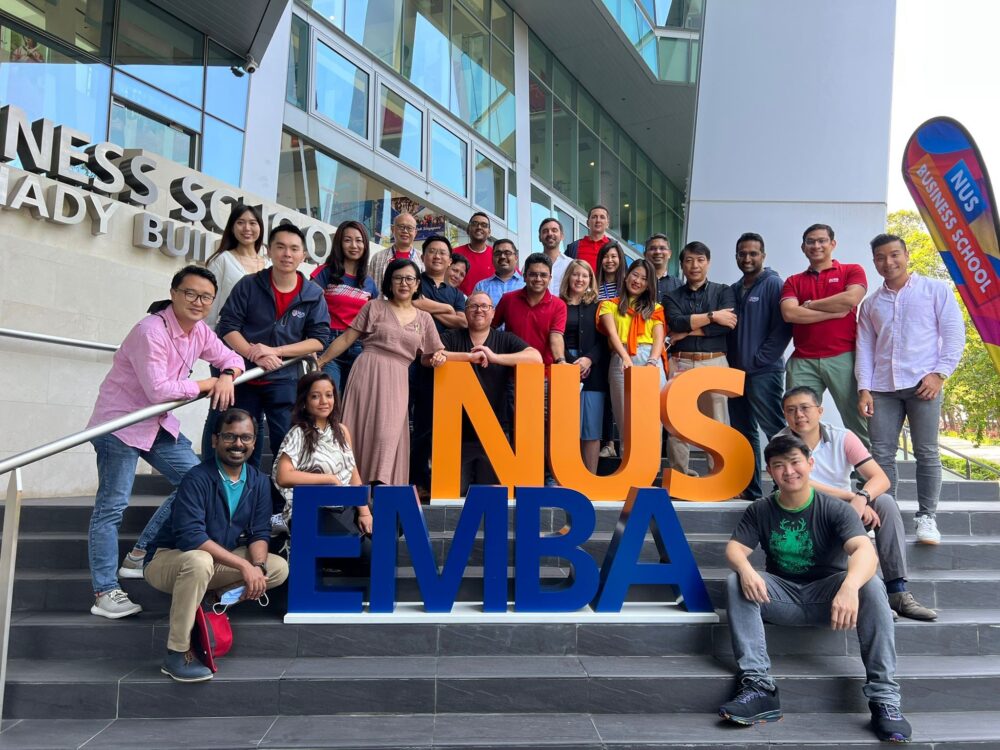NUS EMBA candidate Jemma Lampkin advocates for gender diversity; she believes in hiring based on talent and providing opportunities to female talent.
Jemma currently works at AkzoNobel, where she is the Global Commercial Director, Yacht Coatings, she is also a member of the Singapore chapter of the organisation’s Women Inspired Network. The Network aims to advance women’s rights and helps link female employees with AkzoNobel’s diversity initiatives.
As she graduates in the second half of the year, Jemma says she learned a lot of leadership lessons but her NUS journey also reminded her of the importance of diversity. She shares with BIZBeat her learning experience.
Q: Why did you want to take an EMBA?
I felt I was plateauing in terms of my learning. My travel schedule was reduced to zero because of the pandemic, which freed up a lot of time for me to focus on learning and development. I don’t think my career goals changed, per se, but I was determined to stay in a growth mindset during the lockdowns in Singapore.
Q: What was it like for you at NUS?
The education at NUS is excellent, and I learned a lot from some key subjects, like corporate finance, accounting, and macro/microeconomics. All of these have been helpful while trying to run a business during the pandemic, current supply chain crisis, political unrest, etcetera.
Beyond that, many of my learnings came from my cohort. My classmates come from different industries and levels of expertise – the collective knowledge in the class is incredible. Everyone has a different perspective to bring to the table. It’s been a good reminder of the importance of having a diverse team and not being in the habit of only hiring people like yourself.

Jemma (centre) with her class
Q: What’s NUS’ influence on your work in gender diversity?
It raised my awareness that we have more work to do concerning gender diversity. That already started during the application process. When I looked at the global EMBA rankings, it was clear that female students were significantly underrepresented. Females represent about 25% of our cohort, Intake 30, a relatively good representation for an EMBA programme. However, that is clearly still a minority, so that we can improve this further.
Q: What would you say is the way forward for gender diversity in the workplace?
I firmly believe that we need to focus on building the right ecosystem to achieve our ambitions regarding gender diversity. Similar to what you see happening with sustainability lately, setting targets is very important, but it is not the only step. Particularly in large corporations, we tend to get tunnel vision when setting targets and goals. So, I think one of the key challenges is building the right framework around the targets.
For example, we want to have more females amongst our senior executives. But are we setting them up for success and ready to support them? Do male and female colleagues understand why gender diversity is important and why we set this goal? Are we staying fair and inclusive to all employees, regardless of our targets for females?
In this sense, the way forward means that we must evaluate all facets of the system to build a supportive and inclusive environment.
Q: As you reach the final months of your EMBA programme, what are some of your memorable moments at NUS?
I will take many good memories with me! One of the most impactful moments was during our first course: marketing with Professor Prem Shamdasani. He stated that the biggest challenge we would face during the programme was our ego. This stuck with me and is something I’ve also reflected upon when I moved to a new role. As executives, it can sometimes feel like we need to know everything or have all the answers. However, it’s often more useful to assume you know nothing and be a sponge to soak up as much new knowledge as possible.




